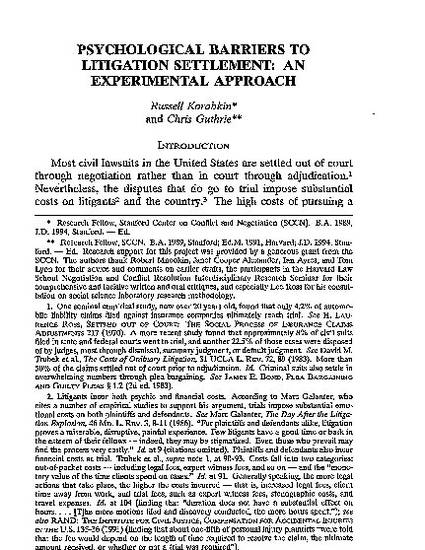
- compromise,
- dispute resolution
The traditional economic model of settlement breakdown -- as developed by Priest and Klein -- provides an important first step in understanding why some lawsuits settle and others go to trial. Rational miscalculation undoubtedly pushes some litigants into court who might otherwise reach out-of-court settlement. Absent miscalculation, however, some litigants still find themselves in court. We have presented experimental evidence suggesting that these litigants may proceed to trial because psychological barriers to value maximizing behavior impede their settlement efforts. Indeed, our research empirically grounds the hypothesis that psychological barriers are powerful causal agents of trials. The usefulness of this evidence does not require rejecting economic thinking on the settlement-versus-trial question. On the contrary, the psychological barriers hypothesis complements economic thinking. The predictions of strategic bargaining theory - as developed by Cooter, Marks, and Mnookin - can be viewed as a refinement to the basis laid by economic models. By layering the variable of litigants' bargaining strategies on top of the variable of litigants' assessments of likely trial outcomes, strategic bargaining theory contributes to a richer understanding of the causes of trials. Empirically demonstrated psychological barriers can be understood as another analytical overlay.
Available at: http://works.bepress.com/chris-guthrie/47/
